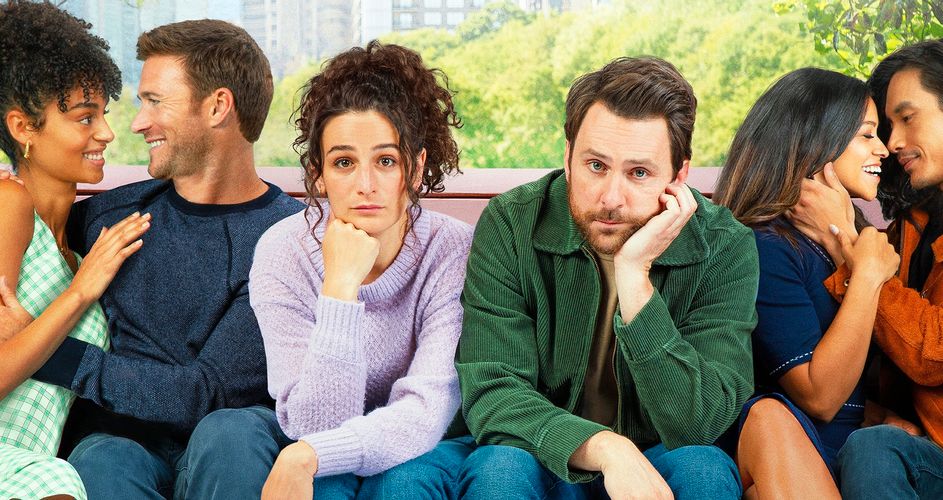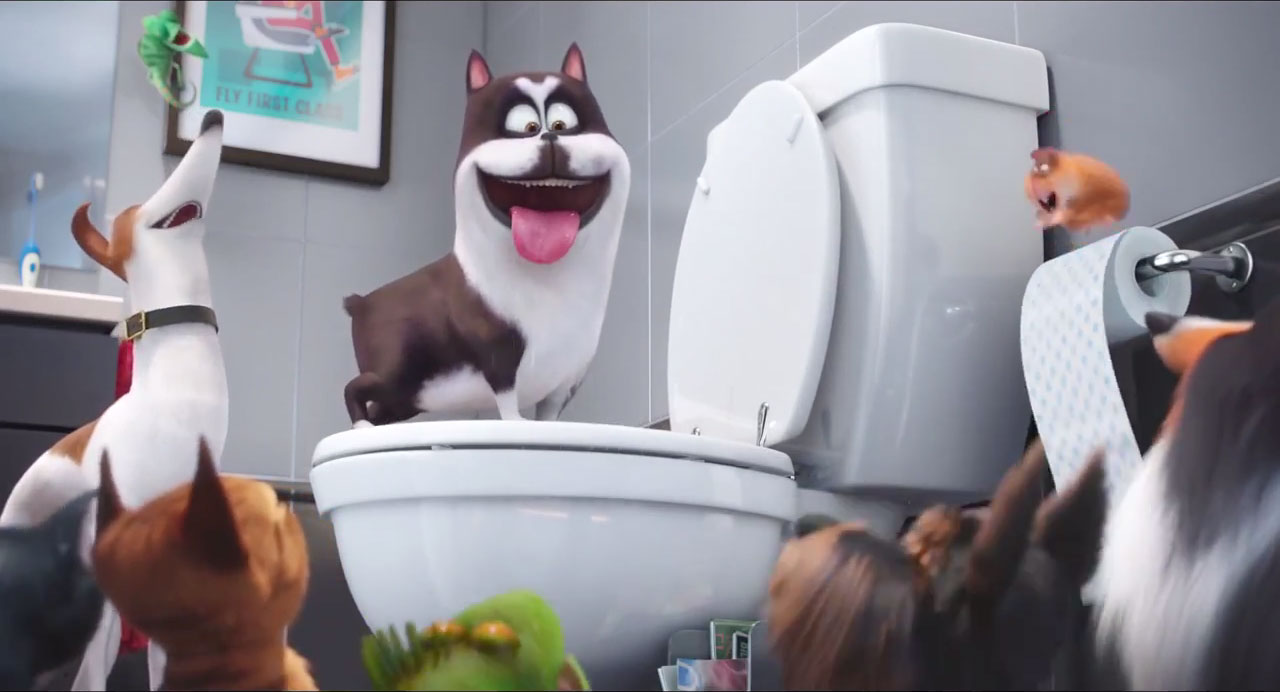I Want You Back
by George Wolf
If we’re gonna start talking about I Want You Back, we can’t start at the start, we have to start at the finish. Because no matter what you think about the film’s first 100 minutes, the last five may seriously turn your head.
But before that Linda Blair moment, Emma (Jenny Slate) and Peter (Charlie Day) first meet in the stairwell of their office building. Emma works for an Orthodontist, Peter’s with a retirement home company, and they both just got dumped. Noah (Scott Eastwood, finally doing more acting than posing) left her for Ginny (Clark Backo), Anne (Gina Rodriguez) left him for Logan (Manny Jacinto), and the two new “sadness siblings” are all in their feelings.
So they start hanging out, giving each other enough emotional support to eventually devise a plan. Emma will throw herself at Logan, while Peter (admitting he’s not hot enough to go after Ginny) will make friends with Noah so he can steer him back to Emma. And with that, the Break Up So We Can Make Up game is on!
We all know where this is going, right? If we’ve seen a romantic comedy we do, and once again the trick lies in finding some way to make the characters and their journey to love worth rooting for.
Screenwriters Isaac Aptaker and Elizabeth Berger (the writing duo behind the terrific Love, Simon and TV’s This Is Us) pair with director Jason Orley for a solid game plan, but it’s the irresistible chemistry of Slate and Day that keeps this madcap setup consistently engaging.
Slate is such an underrated talent. Once again she’s able to confidently take a character from hi-jinx (like the proposed threesome with Anne and Logan) to humanity (an unexpected friendship with a withdrawn kid) while making us care enough to welcome all of it.
And while Day is basically bringing another variation of his usual schtick, it’s still funny and, when paired with Slate, endearing.
Which brings us back to that ending, one that lands with such a thud I was really hoping it was merely a dream sequence. Any semblance of nuance or modern perspective on romance is suddenly replaced with the easiest, most rushed and shallow wrap up this side of a TV sitcom – with a set design to match.
What happened to that other movie? We had a nice thing going, and then it just ghosted us! Come back, I know it can work!
Hmmm…maybe we should hatch a plan.





